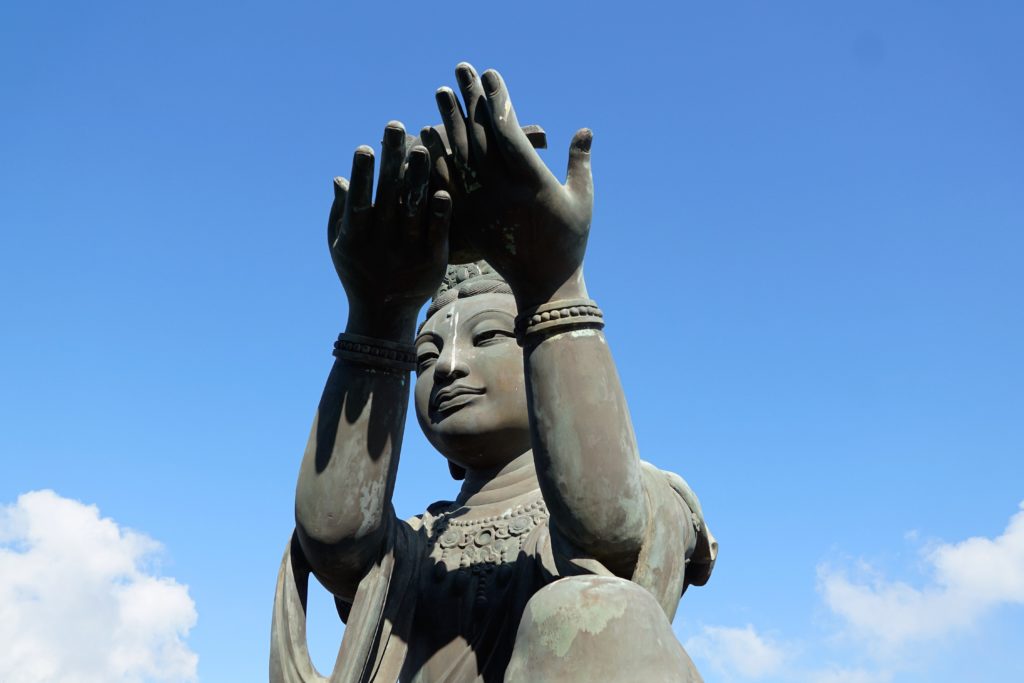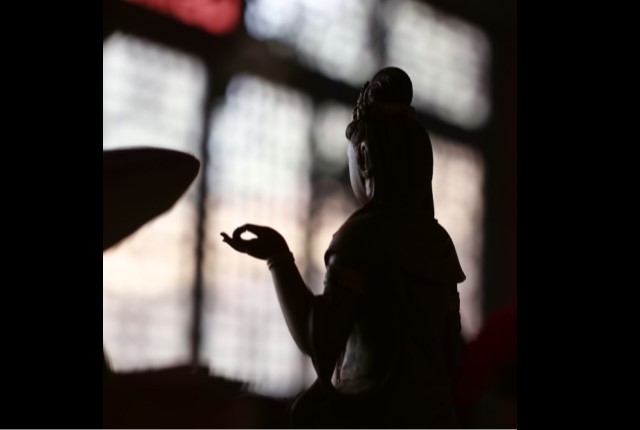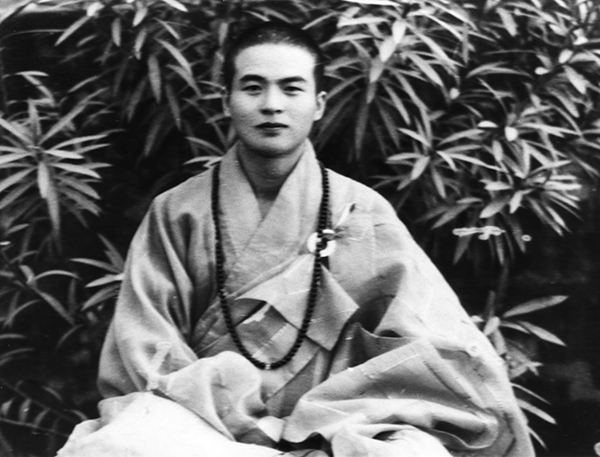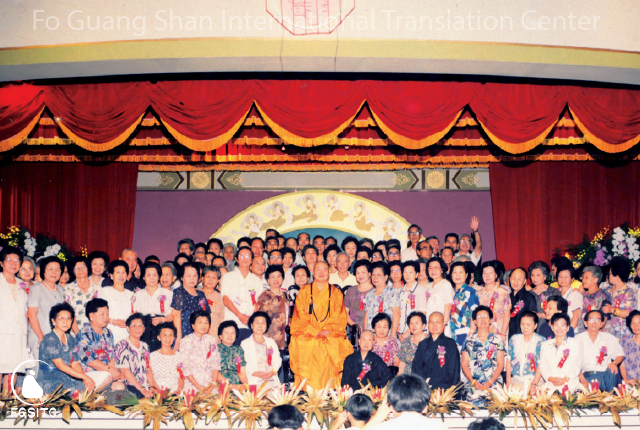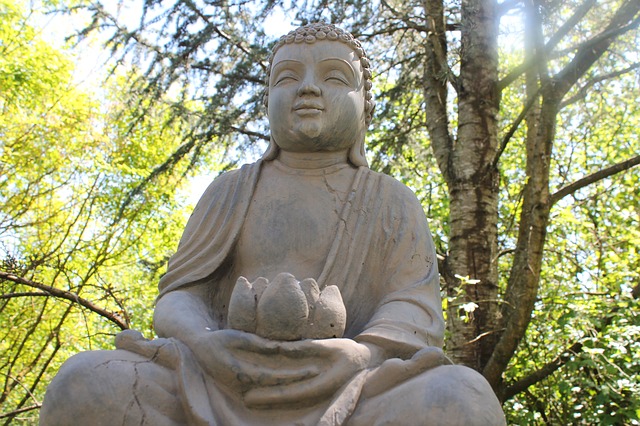
Though the worlds that we see are fundamentally a product of our own minds, they usually do not appear this way to us. Like images in an intense dream, our perceptions appear to be wholly real to us, and not to have been generated by our own mental activity. For this reason, the Buddha taught many ways to help us comprehend the true nature of life. He taught that we are where we are not by accident or by any act of a supreme intelligence, but only by our own actions. Buddhism can seem difficult because it places so much responsibility on the individual practitioner. But ask yourself: Can anyone else understand for me? Can anyone else behave for me? Why should I not be responsible for my actions?
The Buddha says: Realize that more desire causes suffering.
Healthy desires include reasonable hunger, a balanced pursuit of shelter and clothing, reasonable social activity, and a balanced pursuit of hobbies or other amusements. More desire means going beyond these parameters. Sometimes it takes wisdom to know when we are going too far in one direction or another, but for the most part, most of us know where our limits are. When we exceed them, we cause suffering. More desires strain our health, impair our concentration, and often cause us to become angry or envious. They seduce us into lying both to ourselves and to our friends.
The Buddha taught that more desire is a principal cause of our attachment to the illusory appearances of this world. Coupled with anger and ignorance, desire binds us to the cycle of birth and death, and to the recurring illusions that keep that cycle going. In modern times, there are literally thousands of ways that we can indulge our desires. And yet, who among us has never realized that desire leads to pain? The profound cravings of our beings issue from a level that is far deeper than anything that can be satisfied by sensual gratification. Our deepest longings are an intimation of a truth that transcends all illusory appearances and all sensory needs. The Buddha taught that the way to find this truth is to understand that the illusory self is an illusion and that it maintains itself through greed and anger. Pure Contemplation of the Dharma says, “Greed is like a wolf, while anger is like an evil dragon.”
When we give ourselves over to our desires, they quickly destroy us. When we moderate them, they gradually lead us to the center of our lives.
More desire is like the odor of dead fish. We get so used to it that when the pure fragrance of fresh flowers is offered us, we cannot relax. How tragic to remain bound by a habit generated by an illusion! Su Dongpo once wrote, “Human desires are inexhaustible, and yet that which can fulfill them is limited.” The way to overcome desire is to understand what causes it. When the cause is understood, the cure is much easier to see.
Desires spring from harmful attachments, which are called kleshas in Sanskrit. Sometimes kleshas are also called “unwholesome mental functions,” “defilements,” “impurities,” “obstacles,” “deceptions,” or “karmic attachments.” Harmful attachments are selfish emotional or mental attachments that spring from greed, anger, or ignorance, and which cause us to harm other sentient beings. They seduce us into treating others with contempt in a vain attempt to raise ourselves above them, or to gratify ourselves at their expense. Nothing good ever comes of giving in to a harmful attachment.
The Questions of Sakura Sutra says,
“Because there is love and hate, therefore there are harmful attachments… attachments of love and hate arise from our positive and negative feelings toward things.”
The Sutra on Comprehending Great Wisdom says,
“The way to end harmful attachments is to be diligent and learn to base your actions on right thought.”
The Sutra of Supreme Mindfulness says,
“Harmful attachments, though heaped like mountains, can be torn down by quiet introspection.”
The Avatamsaka Sutra says,
“All sentient beings are possessed of innumerable harmful attachments.”
The Sutra of Great Treasures says,
“Harmful attachments are like wild beasts for they act only in their own interests and won’t be controlled.”
The Treatise on the Perfection of Great Wisdom says,
“Wisdom is like a good arrow for it slays harmful attachments.”
Harmful attachments can be anything from conscious desires to unconscious urges that we are not even aware of ourselves. When we are conscious of our attachments, they are generally easier to control than when we are not conscious of them. When we are not conscious of them, they are like seeds that lie within the soil of our being. When conditions are right, they grow into the tangled vines of desire. When conditions are not right, they lie dormant, often giving no sign of their presence.
Harmful attachments can also be compared to rooms within the unconscious mind. When conditions are right, the doors to these rooms open and the urges behind them come forth. When conditions are not right, the doors remain closed, often giving us no indication of what lies inside. No one can escape these truths. Our minds are filled with a complexity of desire and passion that requires great effort to comprehend, let alone to control and overcome. Desire can be controlled by honest introspection and honest application of the truths revealed thereby. It cannot be controlled by indulgence because indulgence always plants more seeds of the same type.
From The Great Realizations, written by Venerable Master Hsing Yun.
Image from Pixabay.

